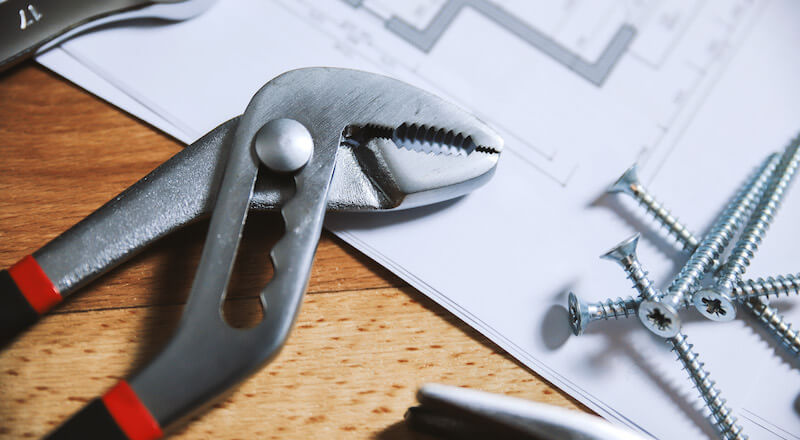In the past, buying a home meant that if you had more money for a down payment, you would pay a lower interest rate. These days, that’s not the case. It can seem strange, or unfair. But, there are reasons for the shift in policy (namely, to get more people into home ownership during economic downturns).
On the plus side, the new system can mean getting a great Vancouver-area mortgage rate and home equity plan. You may be able to afford buying a home sooner than later. And, in time, that can work out better for your long-term finances.
Here’s how…
Your down payment requirements may not be as high as you think
If you’ve been waiting to save for a down payment that is over 20% of your home purchase price, your wait may be over.
You see, in Canada, home loan interest rates used to be classified as one of two kinds: high-ratio mortgages and conventional mortgages. In essence, these were defined as:
High-ratio mortgage: the borrower paying less than 20% as a down payment, and purchasing mortgage default insurance.
Conventional mortgage: the borrower paying 20% or more as a down payment, and the lender deciding whether or not to purchase mortgage default insurance.
These days Canadian mortgage strategy is different. We now have three types of home loan interest rates. Briefly defined, they are:
Insured mortgage: the borrower paying less than 20% as a down payment on an owner-occupied home under $1 million, and buying mandatory mortgage default insurance. Or, the borrower paying more than 20% as a down payment and buying elective mortgage default insurance.
Insurable mortgage: the borrower paying 20% or more as a down payment on a home under $1 million, and the lender opting to pay mortgage insurance.
Uninsurable mortgage: mortgages that can not be insured, neither by the borrower or the lender. Uninsurable transactions include some non-owner-occupied rental units, refinancing arrangements, properties over $1 million and more.
Insured and insurable mortgages must be paid off within 25 years (i.e. they have a maximum 25-year amortization period).
There are a few other details that affect the new types of mortgages, but we won’t get into them here. The crux of the matter is whether or not you can, or should, insure your mortgage.
Wondering if you’d be better off with an insured mortgage or not? Contact me – a Richmond mortgage broker – to find out!
Email: simon@bcmortgagesolutions.ca
Tel: 604-495-8787
Cell: 778-929-3678
So, how does insurance translate to lower down payments and better mortgage rates?
You see, having insurance on a mortgage implies far less risk to a lender. It means that if the borrower (i.e. the home purchaser) can’t pay their monthly mortgage fees, an insurance agency will pay on their behalf. And if the insurance agency can’t pay, the Canadian government will pay.
Of course, the homeowner (i.e. the borrower) will lose their property in either of the above, non-paying scenarios. But the lender remains protected.
Plus, if the borrower is paying for the insurance premiums on the mortgage, that is less costly to the lender.
This all results in lower interest rates for borrower-insured mortgages. The savings and lower risks are passed on to them.
On the flip side, when a lender pays the insurance premiums, or can’t have the security of knowing someone will pay up, even if the borrower can’t, then they have to account for that in their pricing. Their up-front cost and risk goes up, so their interest rates go up too.
The good news is that, for those who can’t afford 20% as a down payment right now, getting into the housing market may be more accessible than before. It may also be more financially advantageous in the long run. This can be especially true for those studying medicine, dentistry or veterinary medicine. This is due to incentives those professions receive for mortgaging a home early in their career.
Keep reading to learn how this mortgage strategy could work for you (regardless of your career choice)!
Using a mortgage broker to help lock in your home value and access a home equity line of credit (HELOC)
As seen above, the amount of money you put down as an up-front payment on a home could mean that you’ll pay more or less in interest rates. Everyone wants the lowest interest rate possible when mortgage hunting in Vancouver. Shockingly, this may require putting down a lower down payment to buy property. Or, it may mean voluntarily adding the cost of mortgage insurance to your monthly fees.
But, would this mean you’d pay more over time, due to the added insurance premiums? Are you still in a ‘safer place’ to wait until you can afford a larger down payment, to avoid these fees?
The answer is: very likely not!
The key is with property values. Every year, home prices go up. Even if the market dips or stabilizes for a little while, the general trend is that property gets more and more expensive as time advances. So a home that is on the market today for $500K, may cost $520K next year.
By contrast, your mortgage insurance premiums might set you back a mere $15K over a 25-year period (to give a general example). So in this sample scenario, you’d still be in a better position to opt for current home values, than to try to avoid paying mortgage insurance premiums. Of course, this only holds true when you’re playing the long game.
The other important factor to consider with home values is home equity. Your home may make you eligible for access to temporary cash flow. You can use this cash to pay for other major expenses that come up. This is called a home equity line of credit, or ‘HELOC’ for short.
Note: if you are close to retirement, a reverse mortgage may be a better option than a HELOC for your case. Read more here.
A HELOC is a way for a bank to offer you a low-interest loan, using your home as collateral. This is called a ‘secured’ line of credit, because the bank can take over your home if you can’t pay back the loan. This reduces risk for the bank which, again, lowers your interest rates.
Now, there are limits to how much you can borrow with a HELOC (it depends on an individual bank’s rules).
But, let’s say you use HELOC funds to renovate your home. If you are responsible for paying back the loan on time, especially sooner than later, your property value can increase, leaving you ‘in the black’ (as they say). You can also use the loan to put a down payment on a secondary home, allowing that property to increase its value over time also.
And here is what most people don’t know: you can take out a HELOC at the same time you apply for a mortgage.
In effect, this increases the amount of cash flow you have on hand. Yes, it does raise your monthly payments. But the goal is to take advantage of passive gain from rising home values.
Not all HELOCs are created equal; find the one that’s best for you
Finding a good deal on a home equity line of credit (HELOC), can take some work. Ideally, you will want one with:
- A low interest rate.
- No penalties for early repayments.
- Easily accessible cash for withdrawal at any time.
- Interest accumulation only on the amount you use (versus the amount you have access to).
When you work with a Vancouver mortgage professional, you can get help finding the best HELOC on the market, with your eligibility requirements.
Mortgage brokers can also help you decide if a HELOC is worth the risk for you. You’ll want to take into account factors such as other debt, or the ROI of your other investment (that you want to use the cash for). These considerations can mean a higher likelihood of losing your home, which you don’t want.
Get the best value out of your mortgage and home equity, by working with a qualified, Vancouver mortgage broker (in Richmond)
Are you now intrigued by the new rules on mortgages rates for buying a Vancouver home? Or, do you think you can use your home equity to further your financial future? If so, your next step is to speak with a professional mortgage broker!
I can help you determine the rates you can get, for the investment that fits your life plans.
Let’s be in touch, and I’ll walk you through the details:
Email: simon@bcmortgagesolutions.ca
Tel: 604-495-8787
Cell: 778-929-3678



